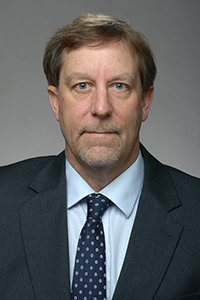
Brad Amendt’s lab received an NIH R56 grant with total costs $480,840 for one year to investigate the role of the IRX1 gene in the regulation of oral tissue repair and maintenance. Dr. Amendt is a professor in the Department of Orthodontics and the Department of Anatomy and Cell Biology at the University of Iowa.
Oral diseases affect an estimated 3.9 billion people globally, posing a significant burden on overall health and quality of life. Conditions such as periodontitis, oral cancer, tooth loss, dental decay, craniofacial birth defects, and orofacial pain all compromise the development and maintenance of oral tissues and the structures that support teeth.
One of the remarkable features of the oral mucosa is its ability to heal rapidly and often without scarring. This unique regenerative capacity is driven by specialized gene programs activated during injury. However, the genetic and molecular mechanisms that orchestrate this process remain largely unexplored.
Dr. Amendt's research has identified Iroquois Homeobox 1 (IRX1/Irx1) as a key player in this regenerative landscape. IRX1 is expressed in the basal layer of the gingival epithelium and in mesenchymal cell niches—both in mouse models and human tissue samples. They have shown that IRX1 marks progenitor cell populations critical for maintaining dental support structures and facilitating the regeneration of oral mucosa and bone.
With support from a one-year pilot grant, the research team is currently investigating the role of IRX1 in gingival wound healing. Early findings are promising: they have observed that increased IRX1 expression correlates with tissue overgrowth in human gingival fibromas, suggesting that IRX1 may activate stem cell niches in the gums. This discovery opens the door to targeted therapies for oral tissue repair.
The team has also developed a patented RNA-based biological drug capable of regulating IRX1 expression. They aim to harness this technology to promote tissue regeneration in patients suffering from oral diseases. This project is part of a larger five-year NIH grant application, and we are actively working with the FDA to initiate human clinical trials.
This research exemplifies the power of collaboration between basic science researchers and the orthodontic community—including faculty, residents, and students. Together, we are advancing new treatments not only for oral mucosal wound healing, but also for alveolar bone repair, cleft palate regeneration, and even to enhance orthodontic tooth movement.
Dr. Lina Moreno is a co-investigator on the project.